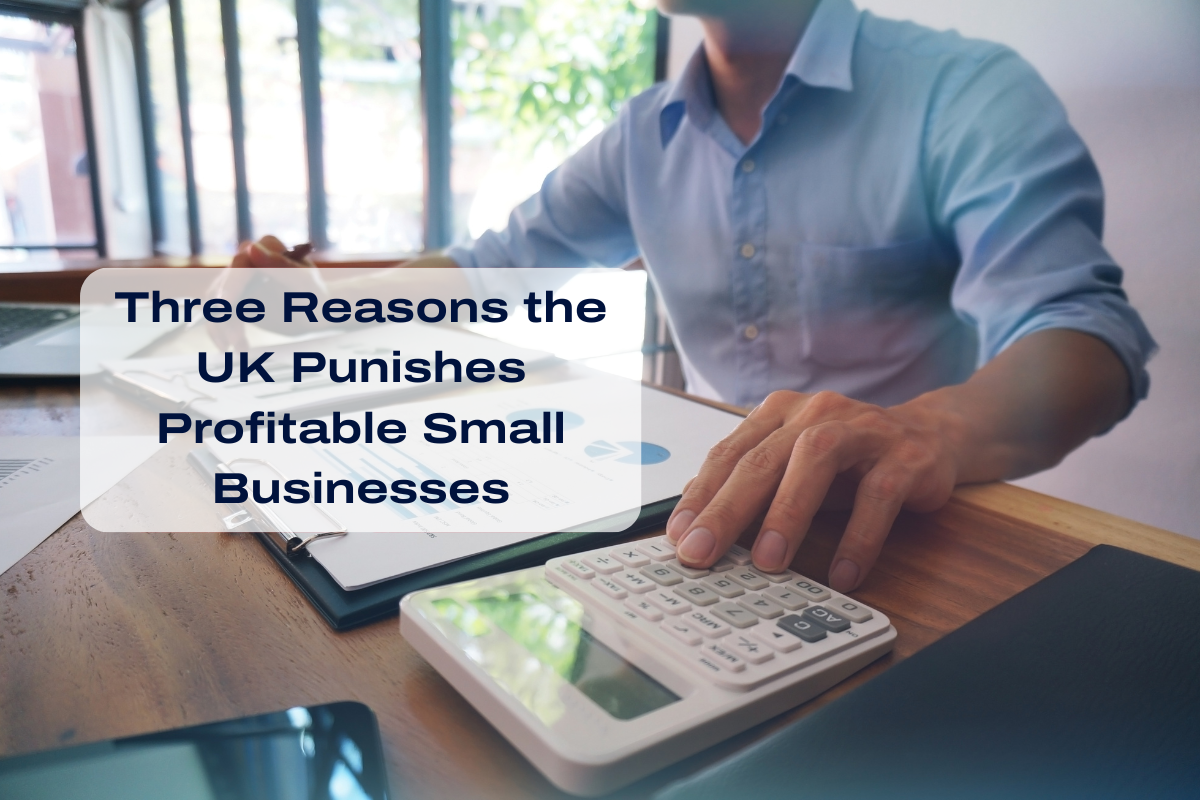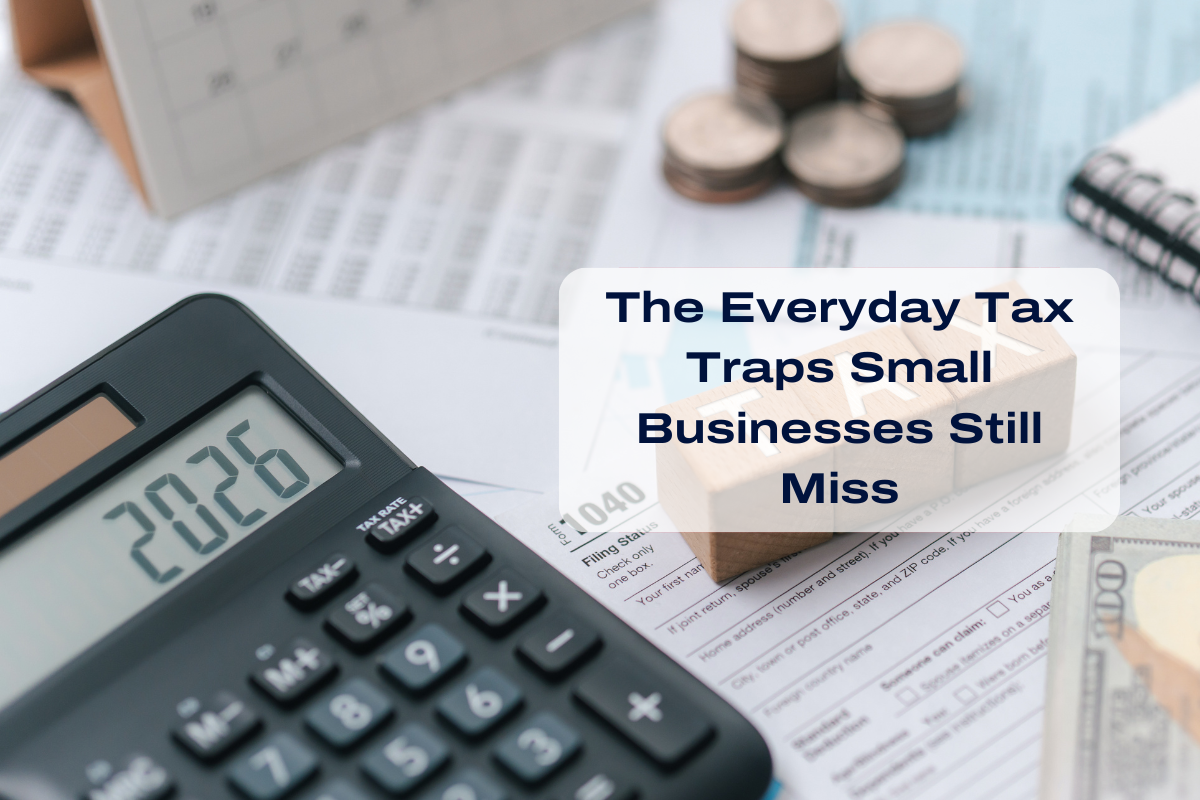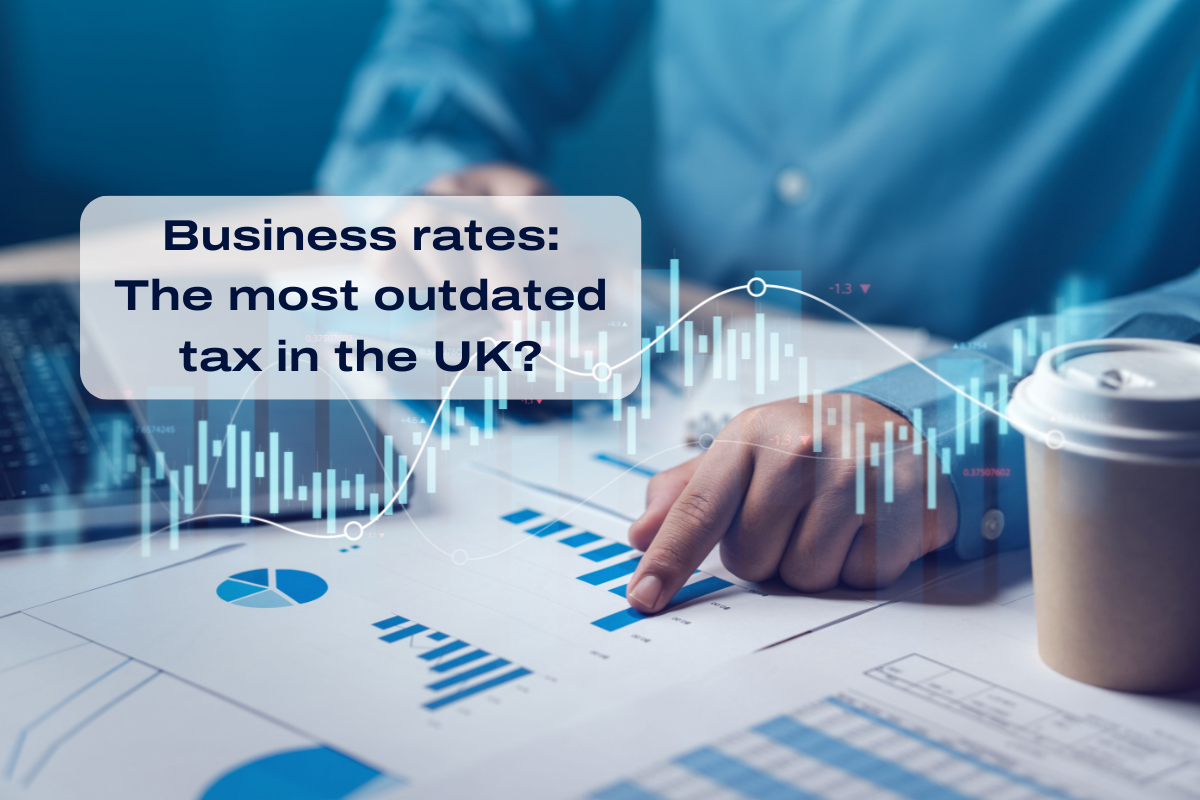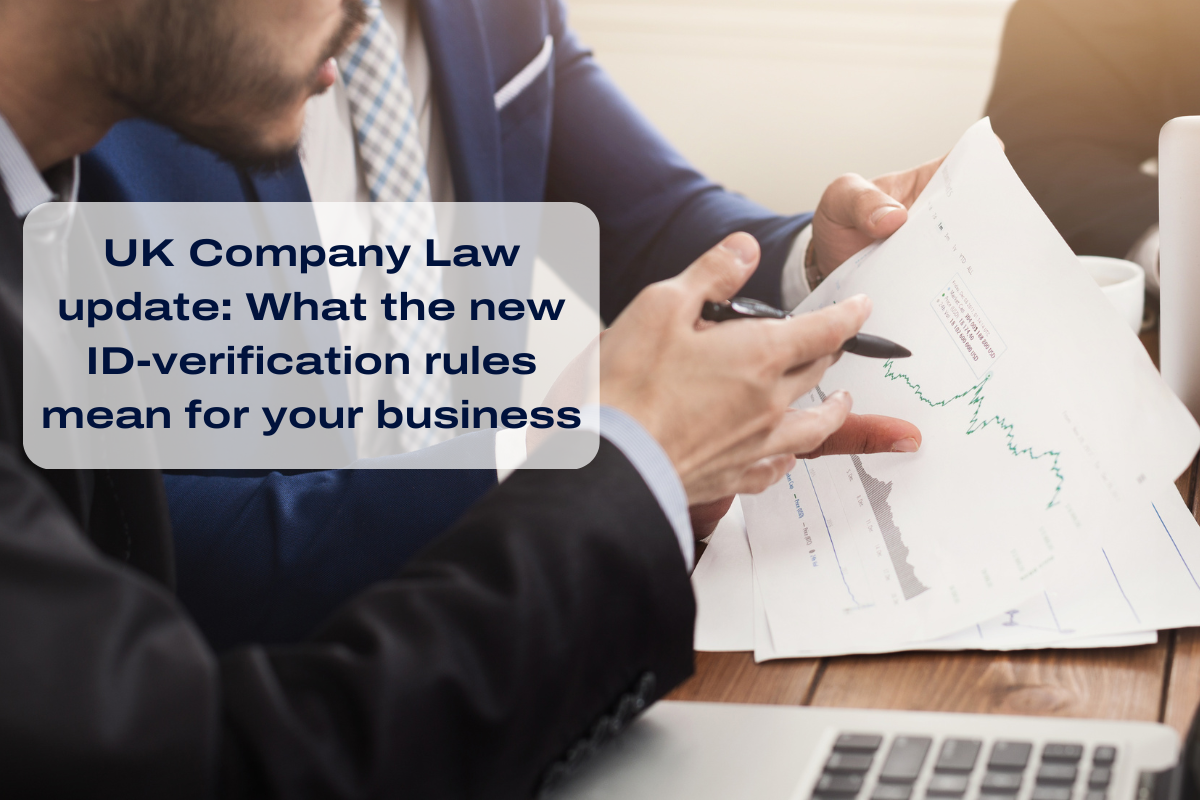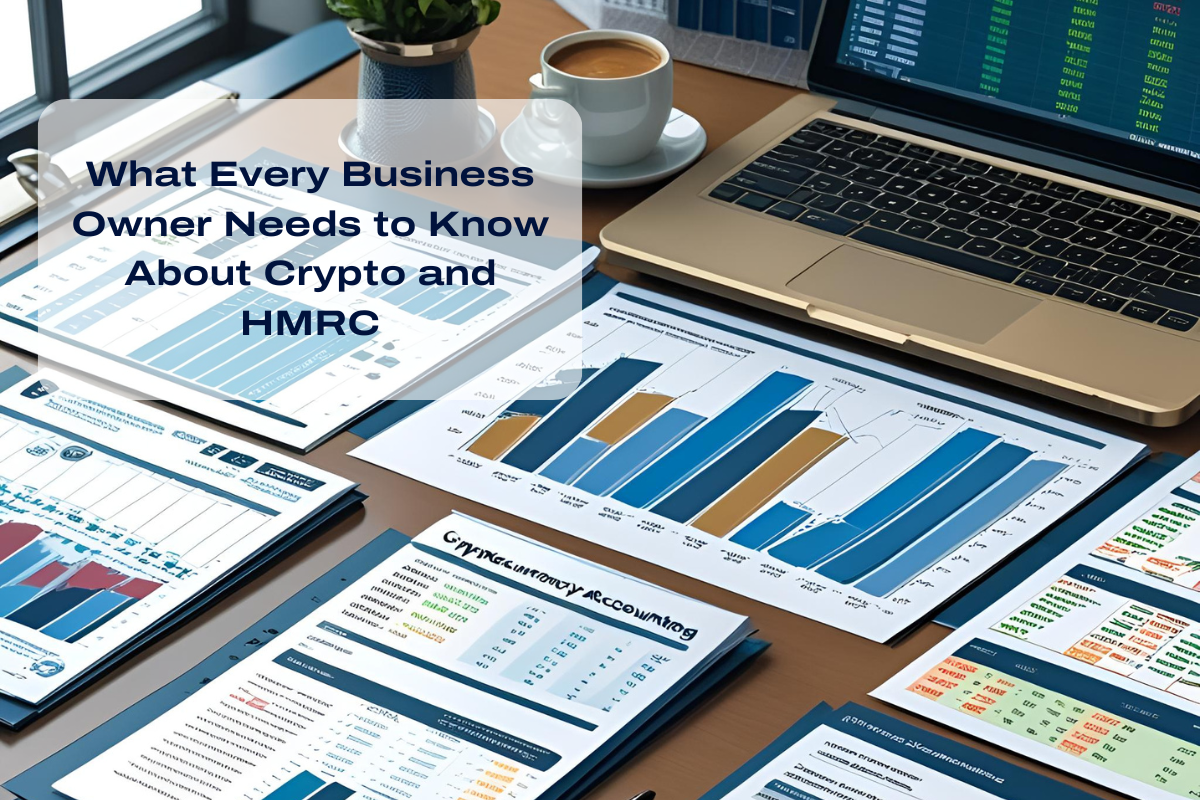Knowledge Portal: Managing Business Finances and more
CHRIS BARNARD October 2, 2025
HMRC Is Cracking Down on Crypto Tax Mistakes

Crypto Tax Red Flags | HMRC Mistakes to Avoid
HMRC Is Cracking Down on Crypto Tax Mistakes
Crypto might be decentralised, but your tax responsibilities definitely aren’t. As HMRC continues to tighten its focus on cryptocurrency activity, business owners, individuals and sole traders using or investing in crypto need to stay one step ahead.
In this article, we highlight the most common mistakes HMRC is actively looking for and how you can avoid them. From sloppy record keeping to misclassifying income, these red flags can lead to enquiries, penalties, or worse.
1. Poor or missing records
HMRC expects you to keep a clear, consistent audit trail of your crypto transactions from payments received to investments sold. With exchanges based abroad and some shutting down entirely, HMRC doesn't accept “I don’t have the data” as a valid excuse.
What to avoid:
- Not tracking dates, token types, wallet addresses, and GBP values (you can use software such as Koinly.io to help).
- Relying only on exchange downloads, which may be incomplete or even vanish
- Failing to record gains, losses, or disposals in your tax return
Stay compliant: Keep detailed records of every transaction, including what you bought or sold, when, and for how much in GBP. Use crypto accounting tools like Koinly, CoinTracker, or Recap. If you're manually tracking, keep spreadsheets backed by screenshots, wallet addresses and valuations on the day of each transaction.
Even if you use a crypto wallet or exchange that provides some reports, they won’t usually track your Section 104 pool or identify which disposals fall under the same-day or 30-day rules. That is your responsibility and, as such, HMRC expects you to get it right.
2. Treating all crypto income as Capital Gains
Not all crypto activity is taxed under Capital Gains Tax (CGT). Some is considered income, especially when it’s earned through staking, mining, or trading-like behaviour.
What to avoid:
- Declaring all crypto profits as capital gains without checking the activity type
- High-frequency buying and selling with a clear profit motive
- Using the term “trading” in your reports or marketing without realising the tax consequences
Stay compliant: Understand HMRC’s criteria for ‘badges of trade’. This is a set of characteristics that help decide whether you’re trading or investing. These include frequency of transactions, intent to profit, scale, and sophistication. If your crypto activity resembles self-employment (particularly in the context of a sole trader), then Income Tax and National Insurance may apply.
Remember that airdrops, staking rewards, and crypto received in return for services are all forms of income, not capital gains.
3. Mixing personal and business crypto
This one’s easy to overlook but it’s a big red flag.
What to avoid:
- Using the same wallet or exchange account for personal and business transactions
- Sending crypto between personal and business wallets without tracking it properly
- Failing to distinguish between private investments and business payments
Stay compliant: Open a separate wallet and exchange account for your business activities. Think of it like a business bank account with clearer records and easier reporting. This will mean there is far less chance of HMRC getting confused (or suspicious).
If you must move tokens between wallets, log those transfers clearly, including the date, value in GBP at the time and reason for the transfer. Treat it like a bank transfer between accounts.
4. Ignoring airdrops and staking rewards
Receiving “free” crypto might sound like a dream, but HMRC sees it differently.
What to avoid:
- Assuming that airdropped tokens are tax-free
- Forgetting to report staking income as it accrues
- Declaring income only when the tokens are sold later
Stay compliant: HMRC treats most airdrops and staking rewards as income, valued at their GBP market value when received. This is especially true if they’re given in exchange for service, promotion or engagement. Later disposals may then be subject to CGT, based on the value at acquisition.
Keep track of when you received each token, what it was worth on that day, and any relevant context. If the tokens were truly unsolicited (e.g. randomly sent to your wallet), they might be exempt (but this is rare).
5. Failing to report below-the-radar gains
It’s not just the big trades that HMRC is looking at. Smaller gains and repeated transactions will quickly catch their eye.
What to avoid:
- Assuming there’s no need to report if your total gains are below the £3,000 CGT allowance. This allowance has dropped significantly in recent years.
- Overlooking the disposal proceeds threshold
- Thinking a loss doesn’t need to be declared
Stay compliant: Even if your total gains are below the CGT threshold, you must report your crypto disposals if the gross proceeds (i.e. total amount you sold for) exceed £12,000 in a single tax year.
If you make a loss, report it anyway as it can be carried forward and offset against future gains. Many people miss this opportunity and pay more tax than necessary later down the line.
HMRC receives data directly from major exchanges. If they see transactions they expect to be reported and they’re missing, you could receive a nudge letter or worse.
6. Not declaring overseas activity
A lot of crypto activity happens on non-UK platforms. That doesn’t make it invisible to HMRC. If you are a UK tax resident, you need to pay tax on worldwide income and capital gains.
What to avoid:
- Using offshore exchanges and assuming HMRC can’t see it
- Not reporting tokens held in foreign wallets
- Failing to convert non-GBP values for accurate reporting
Stay compliant: Crypto gains are taxable if you’re UK-resident, regardless of where the tokens are held or traded. Always report the GBP equivalent and keep records in English. HMRC has information-sharing agreements with many global exchanges and jurisdictions.
How to stay HMRC-compliant with your crypto tax
Don’t wait for a nudge letter. HMRC has stepped up its approach to crypto tax enforcement with compliance campaigns and updated Self Assessment forms. Registered UK exchanges must be registered with HMRC/FCA so they will have information on all investors who use these exchanges. The message is clear: if you’re dealing in crypto, you must stay on top of your reporting.
Common crypto mistakes like mixing business and personal, skipping small gains, or treating everything as CGT, are easily avoided with the right advice and systems in place.
Don’t leave it until you get a nudge letter. By the time HMRC contacts you, they usually already know something’s wrong.
Get expert crypto tax advice
If you're unsure about how to report, what tax applies, or how to track your holdings, you're not alone.
Collective Concepts Accounting specialises in helping small business owners and sole traders navigate crypto tax with confidence.
Contact us today for crypto tax advice that’s clear, practical, and tailored to you.
FAQs on Crypto & HMRC
Do I really need to report small crypto transactions to HMRC?
Yes. Losses should also be reported so they can be carried forward and offset against future gains.
Are all airdrops taxable?
Most are, especially if they’re given in exchange for activity, promotion, or services. HMRC usually treats these as income based on their GBP value when received. Completely unsolicited airdrops may be exempt, but this is rare.
Can I just declare all my crypto profits as capital gains?
No. Some activities (such as staking, mining, or trading at scale) may be considered income and taxed under Income Tax rules. Misclassifying activity is one of the biggest red flags HMRC looks for.
Does HMRC really know about crypto held overseas?
Yes. As a UK tax resident, you must report worldwide income and gains. HMRC has agreements with global exchanges and receives data directly, so offshore holdings are not hidden.
What records should I keep for my crypto transactions?
Keep detailed records of every buy, sell, transfer, airdrop, and reward. Record the date, token type, GBP value at the time, wallet address, and reason for the transaction. Use crypto accounting software or keep manual spreadsheets with evidence like screenshots.
What happens if I don’t declare my crypto activity?
Failing to report can result in penalties, interest charges, or even an HMRC enquiry. In many cases, HMRC already has the data so it’s better to disclose correctly than wait for a nudge letter.
Need help handling crypto in your accounts? Our team at Collective Concepts Accounting can help you navigate crypto with confidence. Contact us today to get started.
